 Petzlover
Petzlover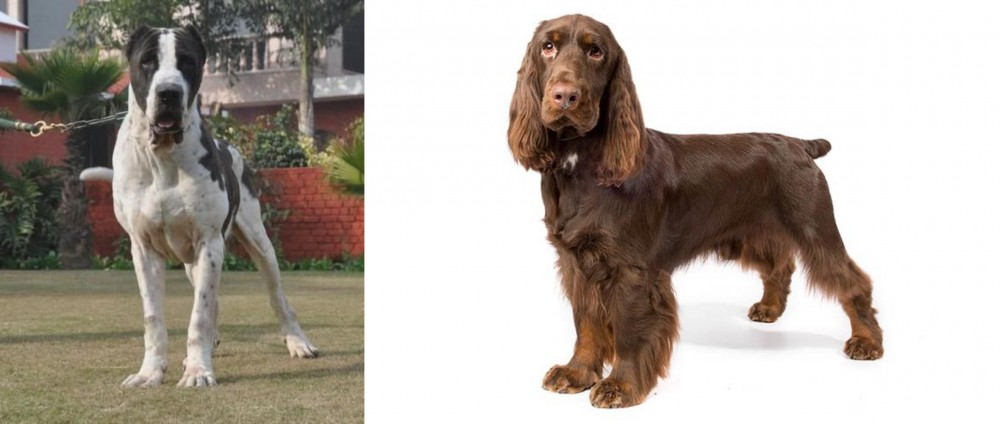 Bully Kutta is originated from India but Field Spaniel is originated from United Kingdom. Bully Kutta may grow 43 cm / 17 inches higher than Field Spaniel. Bully Kutta may weigh 65 kg / 144 pounds more than Field Spaniel. Both Bully Kutta and Field Spaniel has almost same life span. Bully Kutta may have more litter size than Field Spaniel. Bully Kutta requires Low Maintenance. But Field Spaniel requires Moderate Maintenance
Bully Kutta is originated from India but Field Spaniel is originated from United Kingdom. Bully Kutta may grow 43 cm / 17 inches higher than Field Spaniel. Bully Kutta may weigh 65 kg / 144 pounds more than Field Spaniel. Both Bully Kutta and Field Spaniel has almost same life span. Bully Kutta may have more litter size than Field Spaniel. Bully Kutta requires Low Maintenance. But Field Spaniel requires Moderate Maintenance
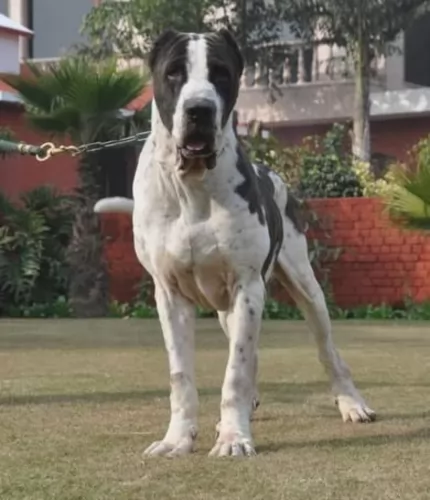 This well built, powerful dog breed is also known as Indian Alangu Mastiff or Pakistani Mastiff. These dogs come from the Punjab and Sindh region of the Indian subcontinent. It is believed that mastiff dogs came with British soldiers during the British invasion, however English Mastiffs, Bulldogs, Bull Terriers and Great Danes are seen as potential ancestors of this large dog.
This well built, powerful dog breed is also known as Indian Alangu Mastiff or Pakistani Mastiff. These dogs come from the Punjab and Sindh region of the Indian subcontinent. It is believed that mastiff dogs came with British soldiers during the British invasion, however English Mastiffs, Bulldogs, Bull Terriers and Great Danes are seen as potential ancestors of this large dog.
There are disputes about the country of origin of this breed, and some people claim that the dog comes from India, while others say it comes from Pakistan. Certainly in Pakistan these dogs are still used for fighting.
 The Field Spaniel was developed to retrieve game, being developed in 19th century England as a hunting companion. Today they are still used as hunting dogs but he is essentially a family companion and show dog.
The Field Spaniel was developed to retrieve game, being developed in 19th century England as a hunting companion. Today they are still used as hunting dogs but he is essentially a family companion and show dog.
He was developed to be a medium-sized, all-black dog. Until 1901, spaniels were divided by weight, with the Field Spaniel being the bigger dog.With developing the breed, the Basset Hound was introduced and then English Springer Spaniels were also brought into the mix.
Today the Field Spaniel is still a rare breed even in the UK. To promote the breed, the dog has been registered as a Vulnerable Native Breed by the Kennel Club.
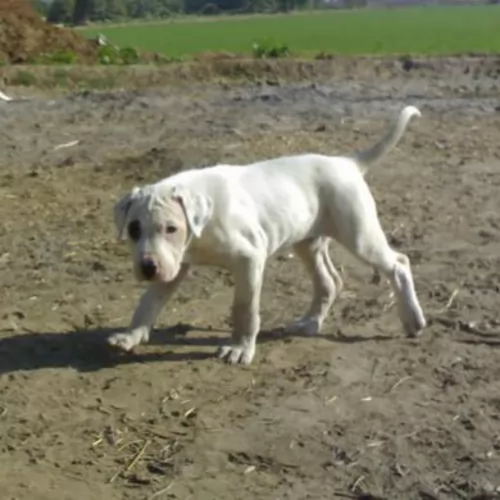 The Bully Kutta is a big, heavy, muscular dog, standing at roughly 81 – 89cm and weighing in at 70–90kg. He isn’t particularly good with children or with other pets simply because the dog is aggressive by nature. If you do opt for this large breed, you’re going to need a large garden and he is going to require a lot of exercise.
The Bully Kutta is a big, heavy, muscular dog, standing at roughly 81 – 89cm and weighing in at 70–90kg. He isn’t particularly good with children or with other pets simply because the dog is aggressive by nature. If you do opt for this large breed, you’re going to need a large garden and he is going to require a lot of exercise.
This is a dog breed that is going to require socialization and training if you want him to be obedient and calm, as he is inclined to be a dominating breed. He’s an intelligent dog and when well trained, he makes a splendid pet with firm, fair owners.
The Bully Kutta has a large, broad head which is supported by a thick well-muscled neck. The skin around his lower jaw is loose. The ears are short, set high and are mostly cropped, but other times they are left to flop over. The tail is sometimes docked but these days mostly left long and tapered.
He has a short smooth coat and is essentially white in color although the coat can also be fawn, brown, black or brindle.
 The Field Spaniel is a medium sized dog, standing at 43–46cm in height and weighing between 18–25kg. The single coat of the Field Spaniel is fairly long with the traditional feathering at the legs, belly, chest and tail.
The Field Spaniel is a medium sized dog, standing at 43–46cm in height and weighing between 18–25kg. The single coat of the Field Spaniel is fairly long with the traditional feathering at the legs, belly, chest and tail.
The coat comes in solid colours of black, liver or roan. You might also find some ticked markings of white. The tail of the Field Spaniel is traditionally docked with the ears being long and floppy.
Happy, busy and active, the Field Spaniel makes an excellent family pet. They get on well with children and with other pets in the home. It is the kind of dog, that while friendly with all members of his human family, he forms a strong bond with one member whom he regards as special.
Bright and intelligent, he is also a dog that does well when socialized and trained, being more docile and less excitable than Cocker spaniels. The Field Spaniel is a dog who thrives on being busy and won’t relish lying around with nothing to do. He loves water and where there is a dam or pond, he’ll be there and want you to join him.
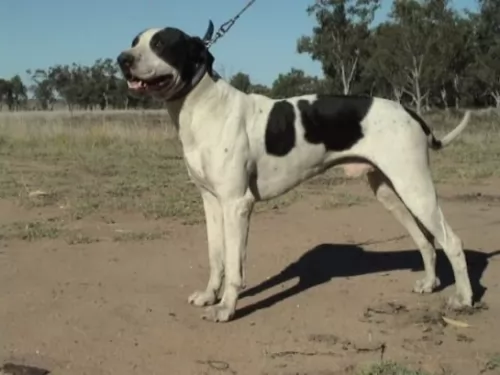 The Bully Kutta is a powerful, imposing dog and they have been nicknamed the ‘Beast from the East’. Unfortunately it is this dog’s thick bones, his looks and his strength that have him used for cruel dog fighting in Pakistan.
The Bully Kutta is a powerful, imposing dog and they have been nicknamed the ‘Beast from the East’. Unfortunately it is this dog’s thick bones, his looks and his strength that have him used for cruel dog fighting in Pakistan.
When not used for fighting, he makes a loyal, devoted companion for the owner who ensures proper socialization and training. Well raised Bully Kuttas are then good with children, being loving, protective and playful.
One just hopes that the future of this giant dog breed is brighter, and that he will be looked upon as more of a companion that just a dog-fighting object to bring in money for his owner.
 Once people have owned any of the Spaniel breeds, they discover what a wonderful friend the dog is. He is loyal, loving, protective, brave, confident, fun-loving and smart. He isn’t aggressive but he may not like a stranger to reach out and pat him.
Once people have owned any of the Spaniel breeds, they discover what a wonderful friend the dog is. He is loyal, loving, protective, brave, confident, fun-loving and smart. He isn’t aggressive but he may not like a stranger to reach out and pat him.
The Field Spaniel is a wonderful dog and he will adapt to life in the city or in the countryside, just so long as he has his beloved human family close by.
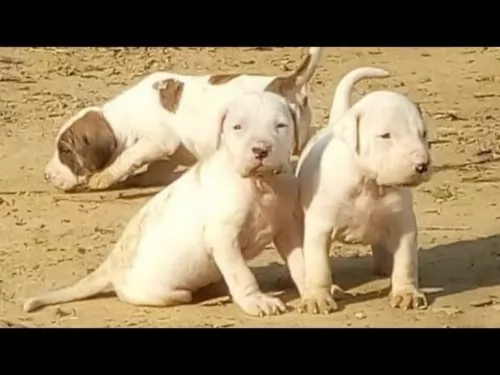 Your Bully Kutta is generally a healthy dog and not often affected by hereditary diseases, but with giant breeds such as this you will have to look out for diseases common to large dogs.
Your Bully Kutta is generally a healthy dog and not often affected by hereditary diseases, but with giant breeds such as this you will have to look out for diseases common to large dogs.
Typical illnesses to watch out for will include hip dysplasia, arthritis, skin allergies and bloat.
This is an inherited condition where the hip joint is improperly formed. For your Bully Kutta it causes wear and tear as well as stiffness in the hips and your dog battles to rise after lying down.
Arthritis in your dog can be managed but it can cause a lot of discomfort for him. This inflammation of the joints can cause pain and stiffness. It is more often seen in older dogs. It can also start at an early age because of problems with bone and joint development and abnormal rubbing within the joint.
Today there are a number of therapy options that can bring some kind of relief to your dog.
 The Field Spaniel is a robust dog breed and can live to be 12 – 14 years of age. Apart from watching for ear infections with his long ears, there are some common dog illnesses that are worth knowing about -
The Field Spaniel is a robust dog breed and can live to be 12 – 14 years of age. Apart from watching for ear infections with his long ears, there are some common dog illnesses that are worth knowing about -
Most older dogs have hardening of the lens and this is when the lens turns a whitish or greyish colour. However if your dog has cloudy eyes, it doesn’t simply mean he can’t see well as he often can. Once a lens has a cataract, some people try nutritional support of the lens which can work to lessen the severity of developing cataracts.
Surgery can help but a veterinary ophthalmologist can determine if cataract surgery is needed as most times it isn’t. If you can’t afford surgery, it is still important to have your dog evaluated by a veterinary ophthalmologist so that you avoid further complications with your pet’s eyes.
Progressive Retinal Atrophy is another eye disease, a degenerative disease that affects the photo-receptor cells where they deteriorate over time and can eventually lead to blindness in the affected dog.
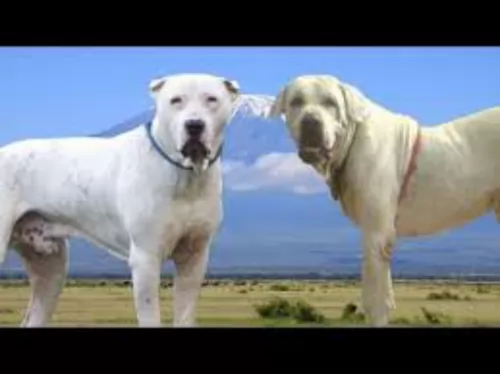 The short coat is low maintenance and as a moderate shedder too, all that is required really is to give your Bully Kutta a good brush twice a week to keep the coat in good condition.
The short coat is low maintenance and as a moderate shedder too, all that is required really is to give your Bully Kutta a good brush twice a week to keep the coat in good condition.
Brush his teeth 2 or 3 times a week with special canine-toothpaste and toothbrush to prevent plaque build-up. He’s a drooler too, so you will need to wipe his face and maybe your clothes of slobber from time to time.
This strong, muscular dog of yours will require an excellent diet. It’s always wonderful if you can give him home-made food such as vegetables, rice and meat. These days you get excellent commercially manufactured food for dogs, and your vet can advise you on the best food for a large, active dog such as the Buly Kutta.
Raw meat is absolutely essential for your dog from time to time and will ensure that his coat doesn’t become dull and with bald spots. Remember, that before dogs were domesticated they used to live on raw meat, so see that he gets some raw meat to prevent skin disorders. Make sure your large pet has a constant supply of fresh, cool water.
Bully Kuttas are going to need a walk every day in the form of exercise. If he is socialized you can take him into the park for ball games. He is a dog that will require plenty of space.
 The Field Spaniel has medium-length to long hair and to avoid matting of the hair, the coat will need to be brushed a least twice a week. Many Spaniel owners take their pets to professional groomers to get the coat and ears trimmed.
The Field Spaniel has medium-length to long hair and to avoid matting of the hair, the coat will need to be brushed a least twice a week. Many Spaniel owners take their pets to professional groomers to get the coat and ears trimmed.
Check your Spaniels ears inside and out regularly, because loving water the way he does, the ears inside can remain damp and become a breeding spot for infection.
Remember to also check your Field Spaniel’s teeth as dental disease can be the root cause of many diseases.
Your Field Spaniel is an active breed and you want to be sure to feed him a high-quality commercially manufactured dog food which has been formulated for his activity level. Every now and again mix in some cooked brown rice, vegetables and chicken and also add in a bit of raw meat from time to time. Ensure cool, fresh water is always available.